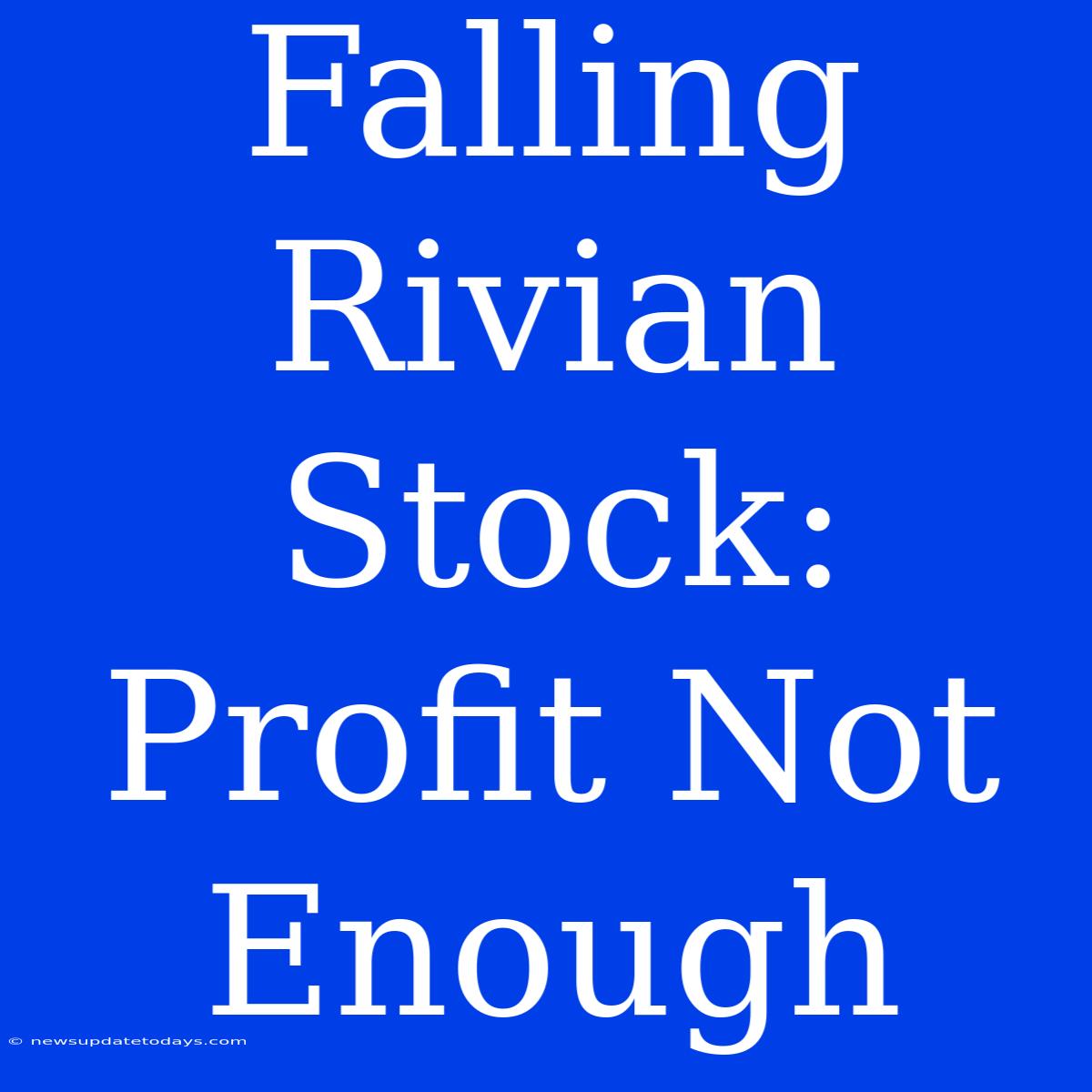Falling Rivian Stock: Is Profit Not Enough?
Rivian Automotive, once a darling of the electric vehicle (EV) market, has seen its stock price plummet despite reporting profits. This raises a crucial question: is profitability alone enough to sustain a thriving EV company in today's fiercely competitive landscape? This article delves into the factors contributing to Rivian's stock decline, beyond simply the bottom line.
Beyond the Profit Margin: Factors Affecting Rivian's Stock Price
While Rivian's recent profit announcement was a positive step, several headwinds are impacting investor sentiment and driving the stock price down. These include:
-
Increased Competition: The EV market is rapidly expanding, with established automakers and new entrants vying for market share. Rivian faces stiff competition from Tesla, Ford, General Motors, and numerous other players, all aggressively pursuing market dominance. This intensifies the pressure on Rivian to demonstrate sustained growth and innovation.
-
Production Challenges: Meeting production targets remains a significant hurdle for Rivian. Supply chain disruptions, manufacturing bottlenecks, and scaling challenges have impacted its ability to deliver vehicles at the pace initially projected. This directly affects revenue generation and investor confidence.
-
High Valuation Concerns: Rivian's initial public offering (IPO) valued the company exceptionally high, leading to concerns about its valuation relative to its current performance and future prospects. Investors are reassessing the company's long-term potential, especially considering the challenges it faces.
-
Economic Uncertainty: The current global economic climate, marked by inflation and rising interest rates, is contributing to investor risk aversion. Investors are becoming more cautious, favoring established companies with proven track records over high-growth, but potentially riskier, ventures like Rivian.
-
Marketing and Brand Awareness: While Rivian has a strong brand image among EV enthusiasts, it still needs to broaden its appeal to a wider consumer base. Effective marketing and brand building are crucial for sustained market penetration and revenue growth.
The Path Forward for Rivian
Rivian's journey isn't over. Profitability is a critical foundation, but it's not a guarantee of success in the long term. The company needs to address the challenges outlined above to regain investor confidence and propel its stock price upwards. This requires:
-
Improved Production Efficiency: Streamlining manufacturing processes and resolving supply chain issues are paramount to meet production goals and reduce costs.
-
Strategic Market Expansion: Expanding into new markets and segments strategically can help diversify revenue streams and mitigate dependence on a limited customer base.
-
Enhanced Marketing and Brand Building: Investing in targeted marketing campaigns and strengthening brand awareness are crucial for attracting a wider range of customers.
-
Technological Innovation: Continuing to invest in research and development to maintain a competitive edge in technology and product features is essential for long-term success.
Conclusion:
Rivian's recent profitability is a positive development, but it's not a panacea for its stock's decline. The company needs a multifaceted approach, addressing production challenges, intensifying marketing efforts, and navigating a competitive landscape effectively. Only then can Rivian realize its full potential and regain investor trust. The coming months and years will be crucial in determining whether Rivian can successfully navigate these challenges and secure its position in the ever-evolving EV market.

